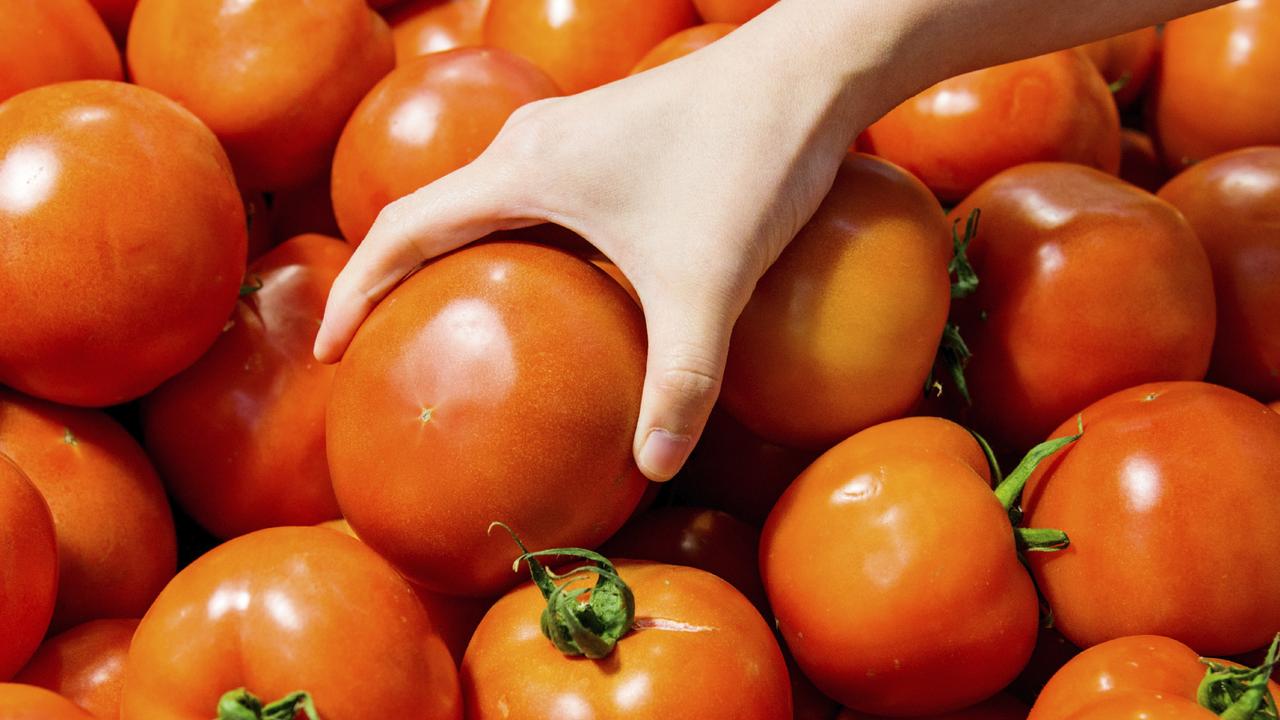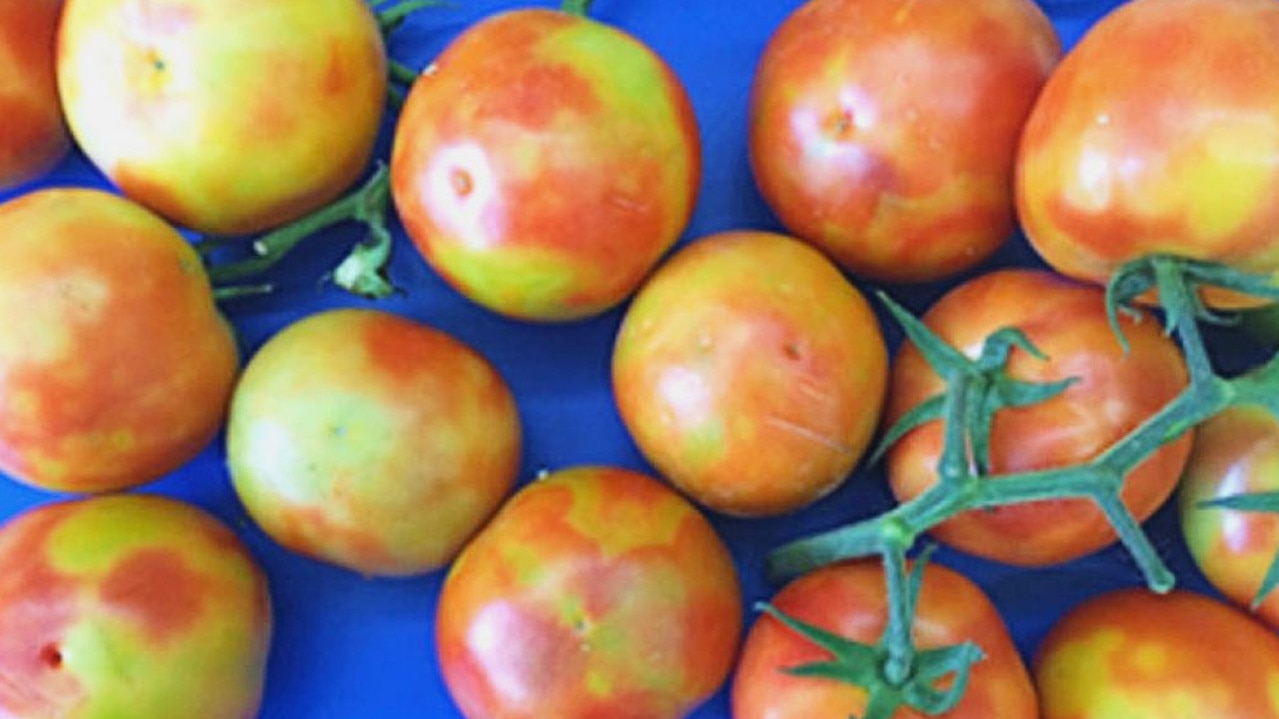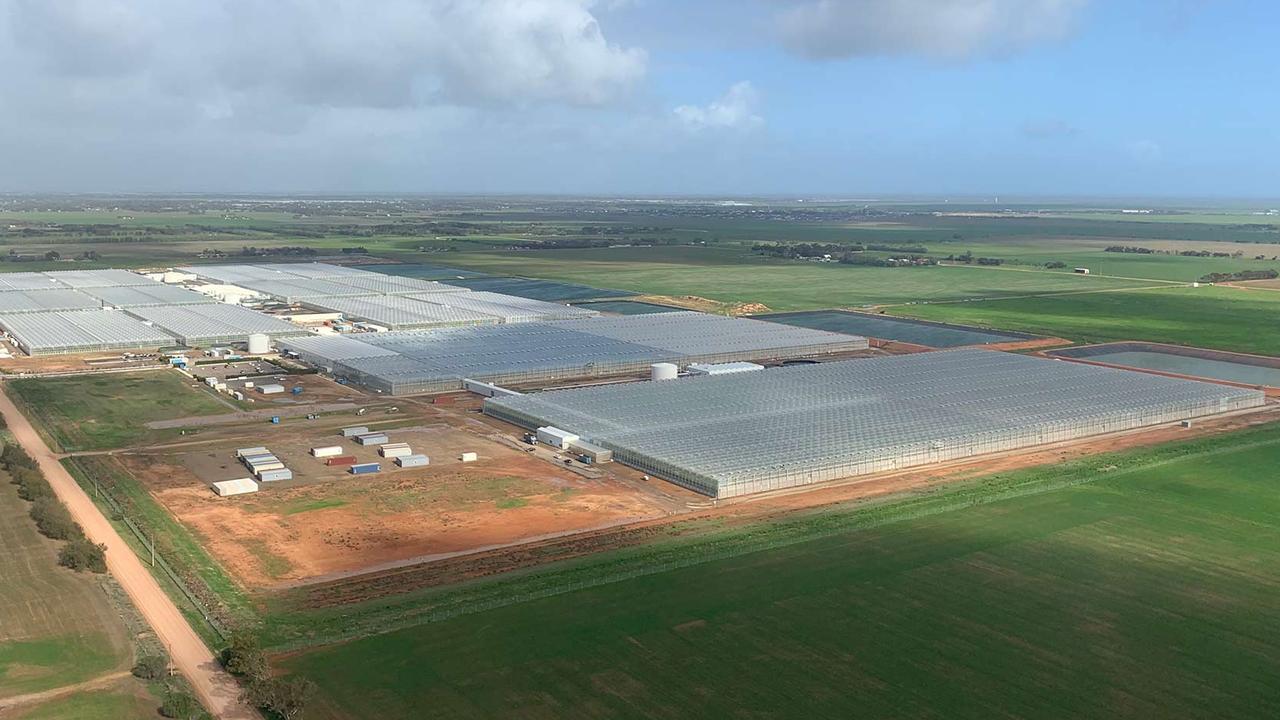Devastating virus appears in Australia and could decimate tomato crops
A virus first seen overseas a decade ago was “not a priority” for the government but is now in Australia with devastating consequences.
A virus that affects tomato crops has exploded in Australia leading to job cuts and threatening to send supermarket prices soaring.
The tomato brown rugose fruit virus was first detected a decade ago overseas and has now arrived in Australia for the first time.
A government minister has admitted preventing its arrival in Australia was not on the “top list of priorities”.
Michael Simonetta, CEO of Perfection Fresh which grows more than a million tomato plants in South Australia, says the virus has had a devastating impact on crops and jobs.
“My heart breaks for the people that we’ve got to let go,” Mr Simonetta said ABC’s 7.30on Monday night.
“We’ve already let go about 250 (people) but there’s, unfortunately, more to come”.
The company, which supplies Woolworths and Coles, has dug up and thrown away tens of thousands of plants, most of which are unaffected, due to what he claims is overzealous government officialdom.
But South Australia’s primary industries minister Clare Scriven told the ABC the aim was to “eradicate” the disease, which can decimate crops, rather than “let it rip,” which she said was the favoured course of action of some growers.
Australia’s vegetable industry is worth $5.8bn annually.

New virus in Australia
The tomato brown rugose fruit virus was first detected in Israel in 2014 and has spread globally.
As well as tomatoes, capsicums and chillies can be infected. It is found mostly in greenhouse grown fruit and vegetables.
In August, for the first time, it was detected in Australia – in South Australia – and has continued to attack some tomato crops.
It’s claimed it entered the country through an affected seed packet.
The Department of Agriculture, Fisheries and Forestry told news.com.au that all tomato seeds for sowing require testing, either onshore or offshore.

Supermarket prices
“Tomato brown rugose virus poses no threats to human health so tomatoes are fine to eat,” said Ms Scriven.
“What it does do is affect the appearance. It makes them mottled and so on. But what it also does is potentially reduces the yield of tomatoes by up to 75 per cent”.
South Australia has taken a strong approach to the virus ordering not only affected plants but those in proximity to be destroyed as well.
New South Wales and Tasmania have put restrictions on South Australian tomatoes while Queensland and Western Australia have taken the drastic step of banning them entirely.
“I’m devastated,” said Mr Simonetta.
“Every day is hundreds of thousands of dollars, and this will end up being tens of millions of dollars of loss for us.
“They’ve all got to be wasted due to the order that we received from (the SA government), and we’ve got to throw away beautiful fruit”.
He said it was inevitable prices would rise in the supermarkets.
“We’re 30 per cent of the market so tomato prices will increase, it will put more pressure on the cost of living crisis, and there’s no reason for it because these tomatoes are perfectly safe, perfectly edible”.


Not able to eradicate
Mr Simonetta has pushed back against claims the virus could destroy the majority of tomato crops.
“Nobody I speak to, whether it be North America or Europe, has told me that their yield is reduced by 75 per cent,” he told the ABC.
“We support biosecurity measures, but this virus is not in our opinion able to be eradicated.
“The UK claimed to have eradicated it twice. What does that mean?”

‘Not top of priority list’
In June, authorities in the US said that tomatoes grown in facilities known to have been affected with brown rugose would now be allowed to be sold to the public.
Mr Simonetta also hit out at the government for not doing enough to prevent the virus’ arrival.
“It was not a matter of if it was (coming to Australia) but always a matter of when”.
Ms Scriven has admitted that Australia was ill prepared for an outbreak of the virus.
“Brown rugose virus has been obviously a risk, but not in that very top list of priorities in terms of the likelihood and the impact.
“It wasn’t necessarily the highest expected in terms of coming into the country”.

‘Let it rip’
But the minister was unrepentant in trying to stamp out the virus despite claims from the industry it now can’t be got rid of.
“I know there’s a small number of growers who say, ‘look, we should just let it rip and go straight to (managing it)’,” she told 7.30.
“But while we’ve still got the evidence showing its only three businesses currently infected, then it’s really important that we do everything we can for eradication.”
It’s a decision that likely means tomatoes might be scarcer in the supermarket and prices could rise.
However, it could also keep a virus from spreading nationwide.






